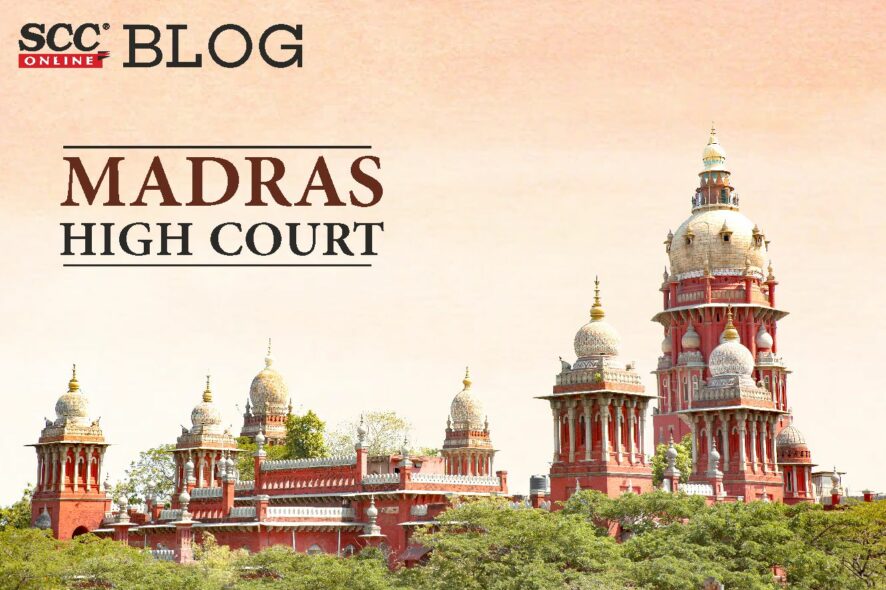Madras High Court: Senthil Kumar Ramamoorthy, J. remarked that a suit cannot be summarily decreed at the instance of a plaintiff unless such plaintiff satisfies the court that the suit claim stands duly proved.
The facts of the case are such that the first defendant borrowed money from the Plaintiff under multiple facility agreements guaranteed by the second and third Respondents/Defendants. The instant application was filed by the Plaintiff for summary judgment seeking judgment and decree for the suit claim of Rs. 38, 16, 45,711, jointly and severally, against the first and second Respondents/Defendants.
In total four defenses were raised by the first defendant primarily being on the basis of the dismissal of the earlier application under Order XII Rule 6 Civil Procedure Code, i.e., CPC. The Applicant asserted that the present application is liable to be allowed notwithstanding the dismissal of the application under Order XII Rule 6 CPC because the scope of Order XIII-A is wider than Order XII Rule 6 CPC.
Observations regarding Order XII Rule 6 CPC and Order XIII-A CPC
Order XIII-A is a provision introduced in the CPC by amendment and made applicable only to commercial disputes. Order XIII-A enables either the plaintiff(s) or the defendant(s) to apply for summary judgment at any time after the summons has been served on the defendant(s) but before issues are framed in the suit. Thus, in contrast to Order XII Rule 6, an application for summary judgment cannot be filed once issues are framed. The second difference between the two provisions is that an application under Order XII Rule 6 of CPC can only be filed on the basis of admissions, whether in the pleadings or otherwise, and whether made orally or in writing, whereas, an admission is not a necessary pre-condition for an application for summary judgment, although such application is also maintainable on the basis of admissions by the counter party. The third difference is that the Court may act on its own motion to pronounce a judgment on admission, whereas an application by one of the parties is mandatory under Order XIII-A.
The Court thus observed that two requirements should be satisfied for the grant of a summary judgment. The first requirement is that the applicant should establish that the counter party has no real prospect of successfully defending the claim, if the applicant is the plaintiff, or, if the applicant is the defendant, of succeeding on the claim. The second requirement is that there is no other compelling reason why the claim should not be disposed of before recording oral evidence. Since the conjunction “and” is used between the first and second requirements, the two requirements should be construed as cumulative.
Rules of Evidence vis a vis Order XIII A CPC
Rules 4 & 5 under Order XIII A CPC provide for the filing of evidence, including documentary evidence, by both parties, as in the case of any other application, the burden of proof is on the applicant. Thus, the general principle under the law on evidence, which is enshrined in Section 103 of the Indian Evidence Act, 1872, that the burden of proof lies on the person who makes an assertion applies to an application under Order XIII-A CPC also.
The Court further noted that the applicant should establish that the counter party has no real prospect of defending the claim or succeeding on the claim, as the case may be. The expression ‘no real prospect’ was interpreted by the Court of Appeals (Civil Division) in Terence Paul Swain v. T Hillman, (1999) ECWA Civ 3053 to mean that the word “real” is used in contrast to the word “fanciful”.
Thus, the burden of proof on the applicant is set at a high level, showing that the counter party does not have the realistic possibility of successfully defending or contesting the suit at trial.
Observations on the facts of the case:
The Court earlier rejected the application under Order XII Rule 6 CPC noting,
‘At the outset, three admissions which are relied upon by the applicant do not in fact admit the suit claim. They are all the general admissions regarding the outstanding and the liability of the first defendant company. Whatever claimed in the suit has to be proved through evidence in the manner known to law and the portions of the admission relied by the plaintiff/applicant is a general admission of fact regarding liability of the first defendant company and its inability to pay his creditors. The general admissions of fact cannot be construed as admission of suit claim to pass a judgment and decree. Hence, this application is dismissed. No order as to costs.’
It was submitted by the defendant that the documents which were relied on by the Court to note the above are the same documents which are relied upon by the Applicant to support the present application under Order XIII-A of CPC.
The Court thus observed that on scrutiny, the said documents appear to be insufficient on a standalone basis to establish the suit claim. There is no document on record evidencing the suit claim of about Rs.38.16 crore with further interest thereon.
The Court while disposing of the application concluded that a suit cannot be summarily decreed at the instance of a plaintiff unless such plaintiff satisfies the court that the suit claim stands duly proved. In this case, while oral evidence may not be necessary and the suit may be disposed of expeditiously, further documentary evidence is necessary.
[Northern Arc Capital Limited v. Sambandh Finserv Private Limited, 2022 SCC OnLine Mad 2904, decided on 8, June 2022]
Appearances
For the Plaintiff: Mr Anirudh Krishnan, Mr Adarsh Subramanian, and Mr Shiva
For the Defendant: Mr Rahul M. Shankar for Mr Supriyo Ranjan Mahopatra (D1), and Mr Prashant Rajagopal for T.M. Mano (D2)
*Arunima Bose, Editorial Assistant has reported this brief.






